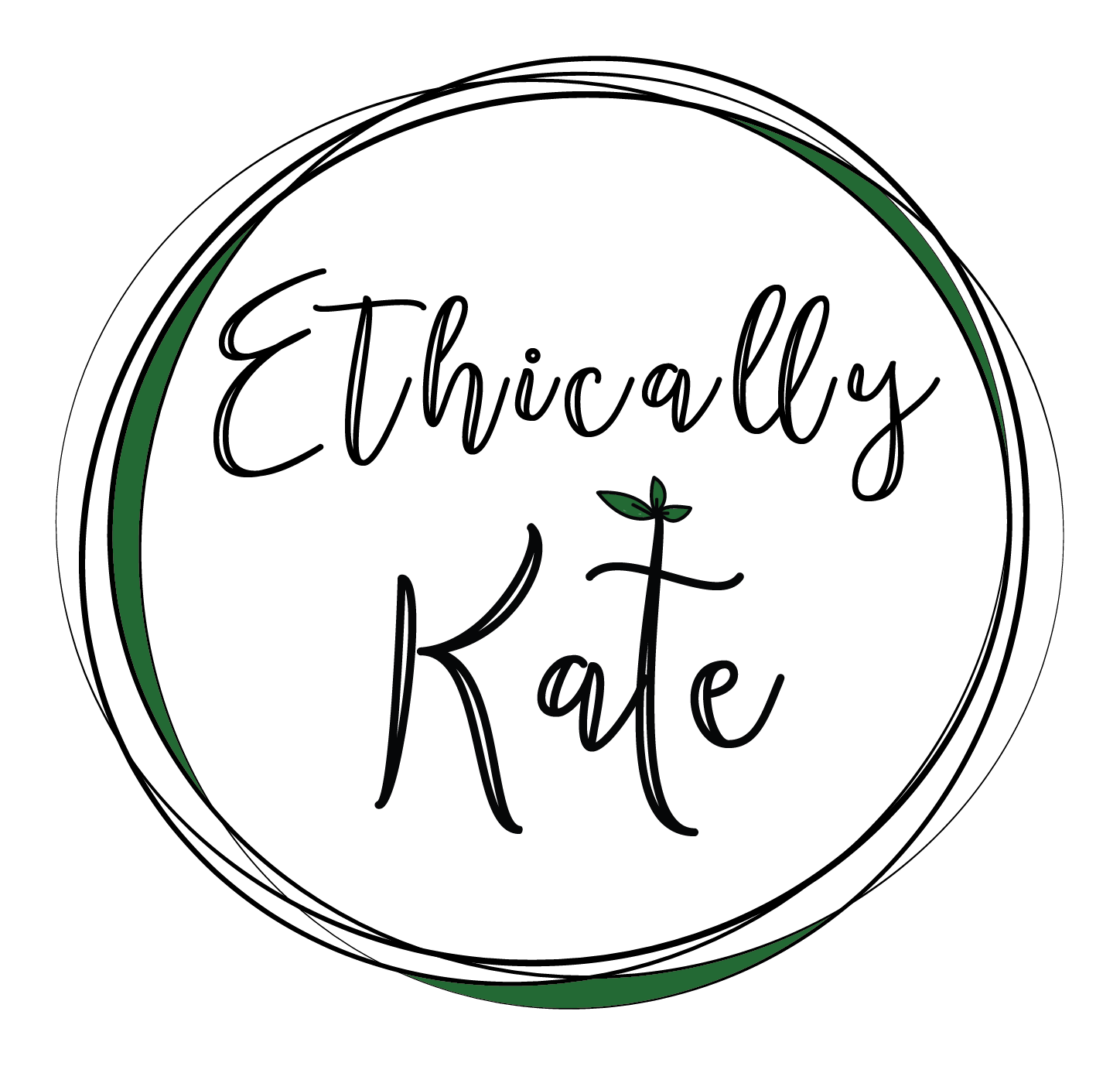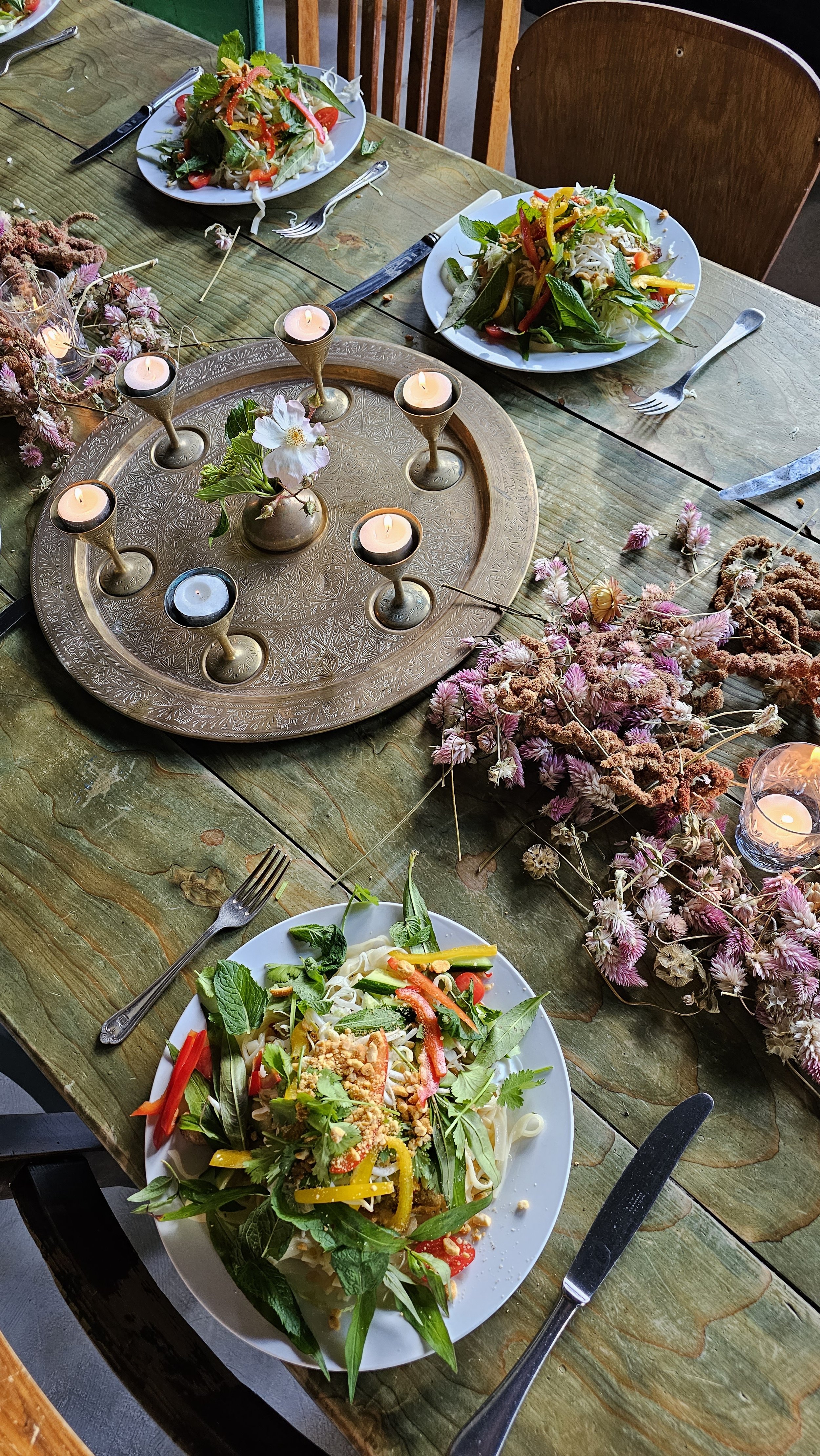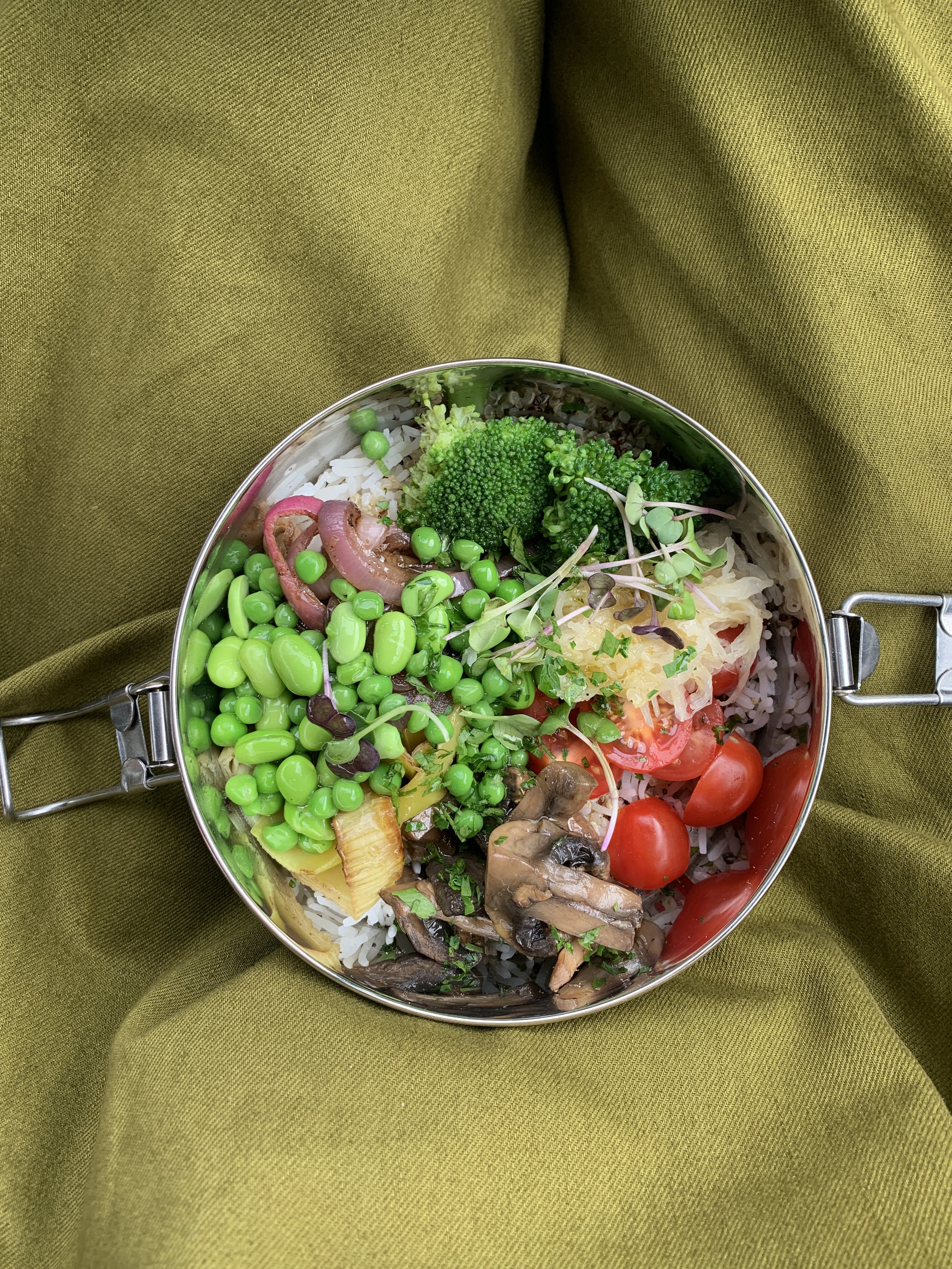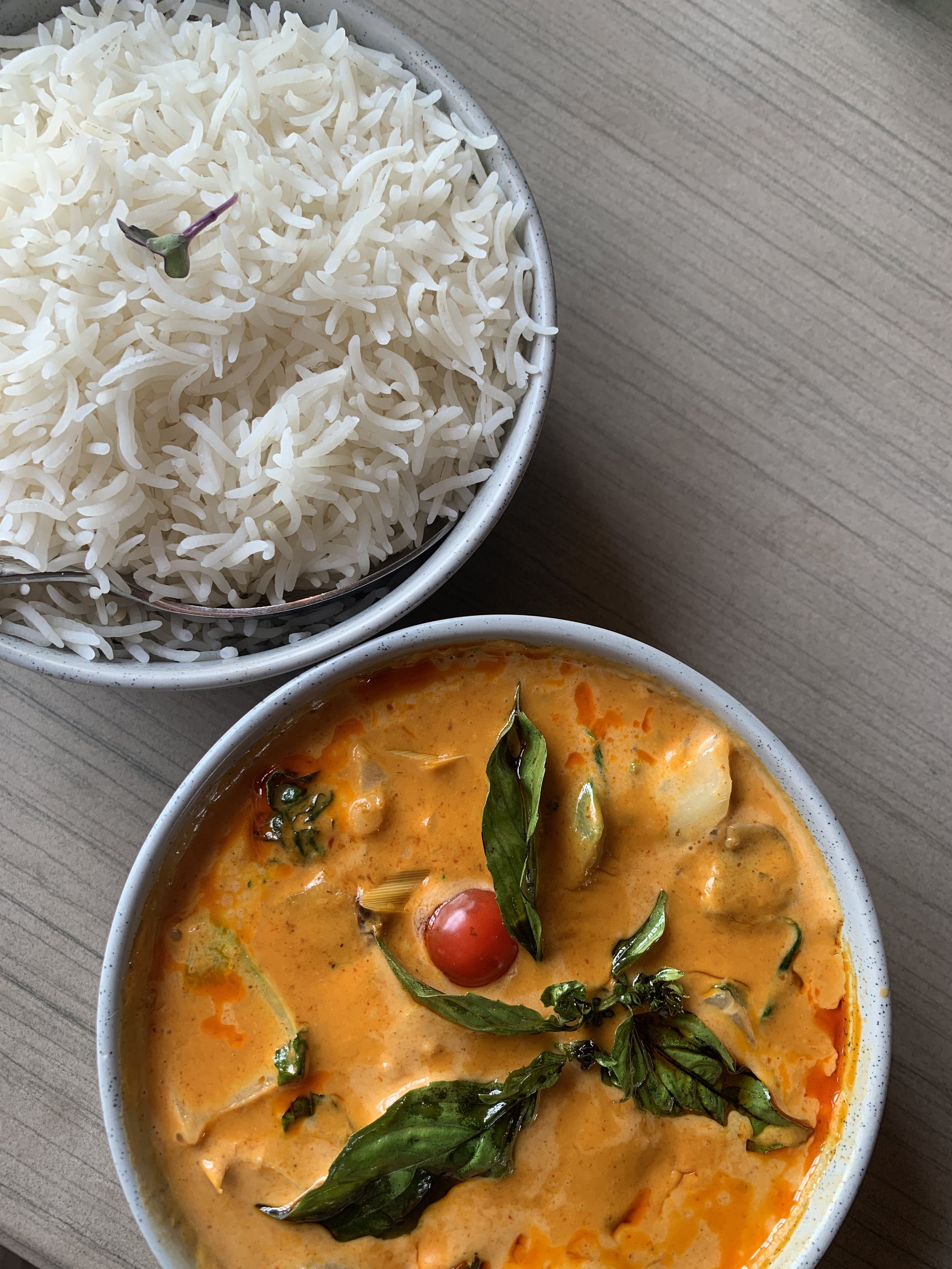My Year Of Buying New Zealand Made Food
During the year 2024 I will only buy New Zealand made food, preferably New Zealand grown too.
After the success of my Wardrobe Freeze in 2022, I feel ready for another year-long challenge. Even though it was a last minute decision, I didn’t make it lightly. I considered multiple different challenges, scrutinising the impact of them at an individual and educational level (as a sustainability educator and social media influencer, I always consider the impact my challenges have on others ). 106 people have already committed to buy only New Zealand made food alongside me and I encourage you to join in too! If you’re in another country, obviously replace ‘New Zealand’ with the country you live in. Local food is the goal.
The ‘Rules’
Buy New Zealand made food only (but if you screw up, treat it as a wee bump, not the end of the challenge)
Seek out NZ grown food as much as possible (with more lenience for foods we can’t grow here)
Let go of the challenge when eating at other people’s houses (eat the damn food and be grateful for it - otherwise 2024 would be the year of losing friends because I am also coeliac!)
Eat any food already in your possession (otherwise that would be wasteful)
I decided to embark on this challenge for several reasons.
To support the struggling local food industry
I’ve become lazy when it comes to discovering local food companies. I know there are so many out there I have yet to discover. This challenge will push me to find small independent brands who deserve my money and need it now more than ever.
Life is incredibly tough for our small to medium food producers at the moment. This is because our major retailers aren't designed to support smaller producers. Supermarkets make up such a huge percentage of food sales in NZ that there are limited spaces in the small number of independent retailers. This is exacerbated by the cost of living crisis which means we tend to spend less on food. We've been convinced that local food is more expensive (not always true), so we've stopped buying from small brands and local people. We see these as luxuries. I see them as an investment in a world I want to live in - diverse, resilient, connected communities. - Angela, Eat New Zealand
I’d rather give my money to a family run businesses who smile whenever an order pops through than support a greedy corporation. But it’s not just about boycotting ‘the big guys’. I’m driven by the desire for food sovereignty for everyone in Aotearoa New Zealand. Even though I see the incredible benefits of globalisation, I need a moment to come back to my local community.
To Angela’s point, I am also interested in how my food budget will change, if at all. I’ve already busted the myth that supermarkets have the cheapest produce by writing a blog including 13 of Aotearoa New Zealand’s best fruit and vegetable box companies and completing a cost comparison of an organic produce box compared to a supermarket shop. I’m eager to see what other myths I can bust in the name of supporting local!
To become more aware of where my food comes from
I’m only 5 days in and already I am baffled at the places where food comes from. My favourite crackers are made in Thailand. The tortillas my Mum asked for are made in Spain. My favourite vegan aioli is made in Switzerland.
I’m the first to ask the question “where are my clothes made” but in the past I have been less tentative to the question “where is my food made?” I’m not pronouncing local food to be the only answer to a sustainable diet, but I want to be more aware of where my food comes from and understand the complexity of supply chains.
In the past, my food habits have focused around less waste. I fill my own jars with grains, spices, herbs, baking ingredients, and snacks from package free stores, proudly touting a relatively empty rubbish bin. But this is an ignorant way to food shop sustainably. The waste used upstream in the production of my food and transportation may not be under my nose, but it still exists. Even though the bins say ‘made in XXX’ as I grab a scoop and pour it into my BYO container, I’m often too focused to care. A package free pantry sounds (and looks) so much more sexy than a locally produced pantry. So, I’m challenging myself to consider (and reduce) the impact of my food choices beyond solely the piece of plastic a food item ends up in on the shelf.
To reduce the carbon footprint of my food
I’ve heard several contrasting statistics regarding how large the impact of food transport is. The percentage transport accounts for in a food’s total carbon footprint seems to range from 6% to 19%. I’m interested in learning more about what factors contribute to the carbon footprint of food and how this is measured. If we only calculate carbon, sometimes food produced overseas can be less carbon intensive. It’s a complex topic and tackling this challenge will naturally lead me towards deeper research and conversations that I can share online too.
To strengthen my understanding of New Zealand food production
I’m fascinated by what grows in our soil. I’ve never seen a rice paddy in Aotearoa New Zealand (this year I am replacing rice with NZ grown quinoa which will have huge health benefits too!) and this morning I had my first cup of New Zealand grown coffee - just one week ago I didn’t know we could grow it here! This challenge will be a catalyst for me to learn more about the beautiful country I live in and what the land cultivates.
To take control of my eating habits
I’ve been out of my house for a year, travelling and house sitting, plus I have had two major surgeries during the last 6 months. My food habits have changed dramatically and I have all the excuses in the world for consuming whatever I want.
“But I’ve been through a lot of change and just need convenient food.”
“I’m nomadic; I don’t have a fridge.”
“I don’t have the mental capacity to focus on consuming sustainable food.”
“I’ll get back to my usual sustainable food habits when I’m in my own house.”
“I’m recovering from surgery, I just need to eat.”
Some of these excuses are valid and I am all for giving yourself grace when times are hard. It’s certainly more difficult to shop sustainably without a large freezer to store 5 kgs of tomatoes rescued from the bin or a cupboard to brew my kombucha. But after a year of grabbing basically whatever will fill my belly (sans gluten, because I’m coeliac), I’m absolutely over my own excuses.
The rescued tomatoes I cut, stewed, froze, and turned into pasta sauces.
The reason I am over it is not just the growing discomfort I feel as I put another piece of plastic in the bin from a product most likely made overseas. I’m over my excuses because living outside of my values really sucks. I feel disempowered. I feel out of control. I feel more despair for the planet than ever.
While living in my beautiful little suburban homestead with access to glass bottle milk return schemes, a vegetable garden, the luxury of a flexible work schedule, and all the tools to reduce my waste, I was more likely to say “it’s easy to live without waste!” But as soon as I stepped foot outside of that little bubble, I was hit with the reality that society does not make it easy to live within sustainable values. I often talk about how aligning your values with your actions is a privilege. I know this now more than ever. My mental health has suffered because of the misalignment between my values and actions. Knowing the negative impact while not having another choice (aside from starving) is hard.
So away with the excuses. I am strong, I am ready, and I believe everyone, everywhere can live life a little better; myself included. This doesn’t mean I will be perfect; I will continue to acknowledge the restrictions I have as a nomad. But, I will use this challenge as a way to retain control. It’s only been 5 days and already I feel my ‘mojo’ coming back.
To inspire other change
I can only speak for myself, but when I commit to one big change, the rest of my life drastically benefits. I know New Year's resolutions can be cheesy, tokenistic, and unhelpful, but for me they set my whole year off in a positive way. Committing to New Zealand made food will no doubt set me off towards other opportunities to live life better.
I will continue to share what I learn along the way on Instagram and I’d love to hear about your favourite New Zealand made businesses!





